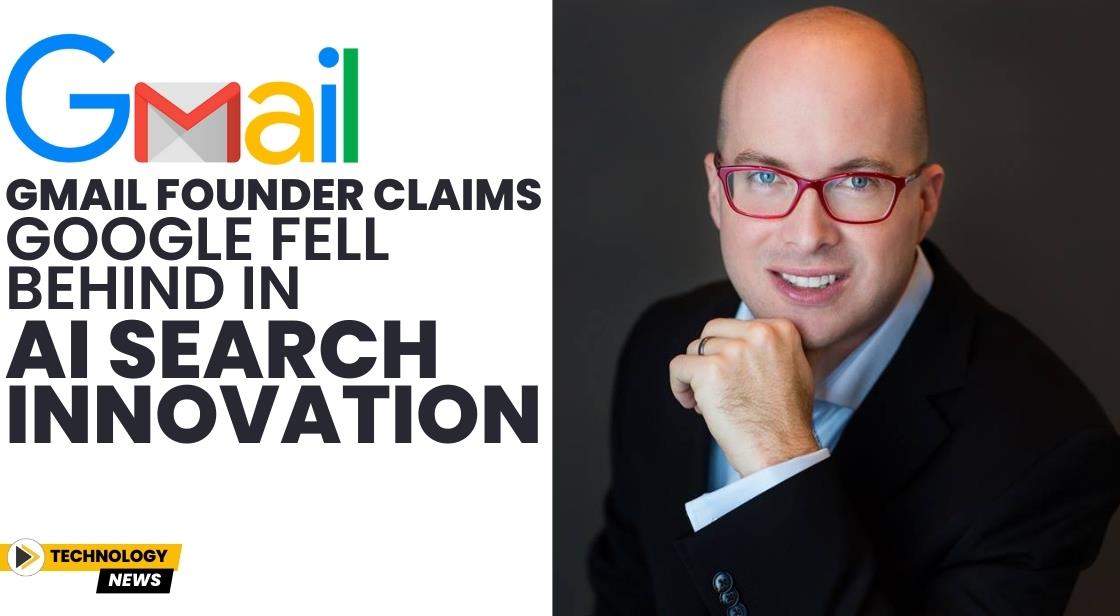Gmail Founder Claims Google Fell Behind in AI Search Innovation

News Synopsis
Apple and Google are frequently viewed as latecomers in the artificial intelligence (AI) sector, especially in comparison to Microsoft. Microsoft has demonstrated a proactive and aggressive strategy in integrating AI into its product and service offerings. This approach has enabled Microsoft to rapidly establish itself as a key player in the AI landscape, with its AI technologies becoming deeply embedded across its various platforms, from productivity tools like Microsoft 365 to advanced cloud services with Azure.
In contrast, Apple and Google have been slower to capitalize on AI advancements, resulting in a lag in their AI capabilities. Apple, while focusing on AI for enhancing user experience in devices such as the iPhone and Mac, has not yet matched Microsoft's comprehensive integration. Similarly, Google, despite its substantial resources, is playing catch-up, working to strengthen its AI offerings and overcome its initial delays in the fast-evolving AI market.
Recent Antitrust Ruling Against Google
In a recent antitrust case, Judge Amit Mehta ruled that Google holds a monopoly in the search domain. This decision underscores Google's overwhelming dominance in search, a verdict that Google is expected to appeal. The ruling highlights the significant competitive pressures Google faces, not only from regulatory challenges but also from emerging players in the AI space.
Challenges from OpenAI’s SearchGPT
Among these emerging competitors is OpenAI’s SearchGPT, a tool that poses a formidable threat to Google’s search dominance. Despite Google's substantial resources—ranging from extensive data and talent to cutting-edge computing power—the company has faced difficulties in leveraging these assets to fully capitalize on AI opportunities. This competitive threat from OpenAI underscores the challenges Google encounters as it strives to maintain its market position amidst evolving AI advancements.
Missteps in Google's AI Journey
Google's journey in AI has been marked by notable missteps that have raised concerns about its ability to lead in this field. One such misstep involved the AI Overviews feature, which infamously recommended harmful actions, including eating rocks and committing suicide. These errors not only reflect poorly on Google’s AI development but also cast doubt on its readiness and capability to spearhead advancements in the AI landscape.
Founders' Early Vision vs. Current Reality
Interestingly, Google's founders, Larry Page and Sergey Brin, initially envisioned the company as an AI-centric enterprise when they launched it in 1998. Despite their early ambitions and the substantial resources the company has accumulated over the years, Google has struggled to seize key opportunities in AI. This struggle is particularly evident when compared to the strides made by competitors such as Microsoft and OpenAI.
Paul Buchheit's Insights on Missed Opportunities
Paul Buchheit, the creator of Gmail, recently shed light on these missed opportunities in a podcast with Y Combinator Startup. Buchheit discussed how Google has lagged behind in the rapidly evolving AI field despite having a head start. His insights highlight the challenges Google faces in keeping pace with advancements and maintaining its competitive edge in the AI space.
Progress with Google Gemini
On a more positive note, Google has made some progress in AI, particularly with its chatbot, Google Gemini, which was formerly known as Google Bard. Google Gemini represents a significant step forward, offering capabilities for content generation and integration with other Google services such as Gmail and Docs. These features are designed to enhance productivity and leverage AI for practical applications.
Subscription Model and Competitive Landscape
However, some of the more advanced features of Google Gemini are only accessible through a $20 subscription to Gemini Advanced. This premium version competes directly with OpenAI's ChatGPT Plus and Microsoft's Copilot Pro, both of which offer sophisticated text generation and coding assistance. The subscription model highlights the competitive nature of the AI market, where premium offerings are crucial for maintaining a competitive edge.
Conclusion
while Google has made significant strides in AI, it faces considerable challenges and competition. The recent antitrust ruling and the rise of competitors like OpenAI’s SearchGPT highlight the pressures Google faces as it strives to establish itself as a leader in AI. Despite its early vision and substantial resources, Google’s journey in AI has been marred by missteps and missed opportunities. However, with innovations like Google Gemini, the company continues to push forward in the AI landscape, albeit within a highly competitive environment.
You May Like









